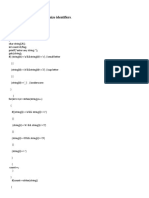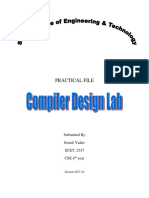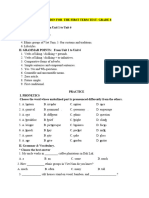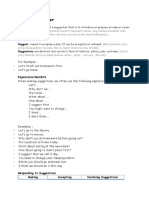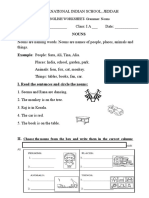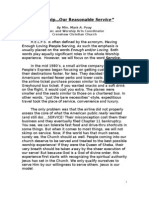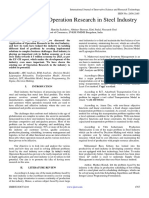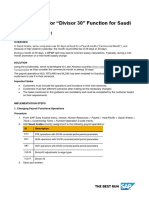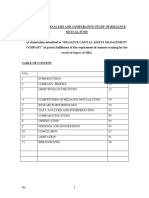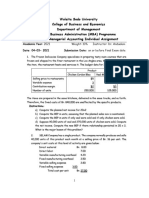0% found this document useful (0 votes)
14 views41 pagesCompiler Lab Report PDF
The document contains multiple C programs that demonstrate various concepts in programming, including comment validation, string pattern recognition, identifier validation, lexical analysis, and grammar parsing. Each program is designed to handle specific tasks such as checking valid comments, recognizing string patterns, validating identifiers, performing lexical analysis, and computing FIRST and FOLLOW sets for grammar. The document provides complete code examples and user interaction for testing these functionalities.
Uploaded by
dkatwal254Copyright
© © All Rights Reserved
We take content rights seriously. If you suspect this is your content, claim it here.
Available Formats
Download as PDF, TXT or read online on Scribd
0% found this document useful (0 votes)
14 views41 pagesCompiler Lab Report PDF
The document contains multiple C programs that demonstrate various concepts in programming, including comment validation, string pattern recognition, identifier validation, lexical analysis, and grammar parsing. Each program is designed to handle specific tasks such as checking valid comments, recognizing string patterns, validating identifiers, performing lexical analysis, and computing FIRST and FOLLOW sets for grammar. The document provides complete code examples and user interaction for testing these functionalities.
Uploaded by
dkatwal254Copyright
© © All Rights Reserved
We take content rights seriously. If you suspect this is your content, claim it here.
Available Formats
Download as PDF, TXT or read online on Scribd
/ 41

























